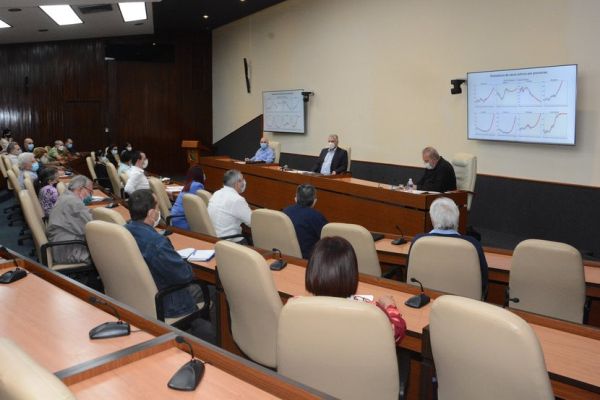
At a meeting in Havana between Cuban President Miguel Díaz-Canel and scientists and experts involved in the fight against the COVID-19 pandemic, it was confirmed that the island is maintaining a follow-up protocol for those convalescing and possible after-effects of the coronavirus, with an emphasis on minors.
Dr. Lissette López, head of the National Pediatrics Group, explained the actions taken with pediatric patients to minimize the psychological and physical traces of the disease and to provide differentiated care for their reincorporation into society.
She recalled that a study carried out in the central province of Villa Clara detected cardiovascular conditions such as myocarditis, pericarditis, effusions and rhythm disturbances in more than 20% of the cases evaluated.
Meanwhile, in other provinces they found blood pressure problems, neurological disorders, respiratory, renal and hematological damage.
Cuba reported a child with Multisystemic Inflammatory Syndrome, two patients with Kawasaki Disease, and an adolescent with Hemophagocytic Syndrome, all linked to COVID-19 — all who are evolving favorably.
In view of this scenario, Dr. Lopez insisted on the need to prevent minors from becoming ill, a trend that has been increasing in the last few months, and in the last 48 hours alone 270 new cases were registered.
He emphasized that infants are at greater risk, because they depend entirely on the care of the family and society.
In Cuba, no child has died from COVID-19, but 51 have required intensive care, added the head of the National Pediatrics Group.
At the meeting they also presented a study of convalescents in the adult population, carried out at the Hermanos Ameijeiras Hospital in Havana, which showed sequelae in half of those evaluated, such as fatigue, pain and difficulty in breathing.
Also loss of taste, sweating and nausea, said Dr. Emilio Buchaca, deputy director of the hospital, who added the detection of biomarker alterations and pulmonary lesions.
Dr. Ileana Morales, director of Science and Technological Innovation of the Ministry of Public Health, spoke of the responsibility of the healthcare personnel working in the community with the application of the protocol for those who have had the disease, currently 91.4 percent of the more than 57,000 diagnosed.
This work includes conducting new clinical trials with this group, such as the phase II trial of the Soberana Plus vaccine candidate; the application of stem cells and Jusvinza peptide to patients with lung lesions.
Cuba is still under stress due to COVID-19, and according to the forecast models, the country will maintain a plateau of 600 to 1,000 daily cases, due to the high transmission.
 Escambray ENGLISH EDITION
Escambray ENGLISH EDITION





Escambray reserves the right to publish comments.